The life of our ancestors has been studied in detail by science and we now know a lot about the daily life of of the ancient Greeks.
But what about the Greek woman?
Most academics and historians agree that its history has either been completely erased or identified with that of ancient Athena. All the other women in Greece have either been completely ignored or we do not even have reliable data to reconstruct their lives and their role in the respective societies.
And so we discuss in general and vaguely about the ancient Greek woman, quoting what we know. And what we know usually concerns Athena. And much less in Spartan.
So we know that she clearly had fewer rights than her husband, as she could not vote, own land, inherit her husband or receive formal education. Her role was limited to simple but important things, such as the household and the family.
But these are general descriptions, schematic categorizations that are most likely caused by the lack of available sources. Or its limited social role. Because when the Greek woman was important, we know her with the above.
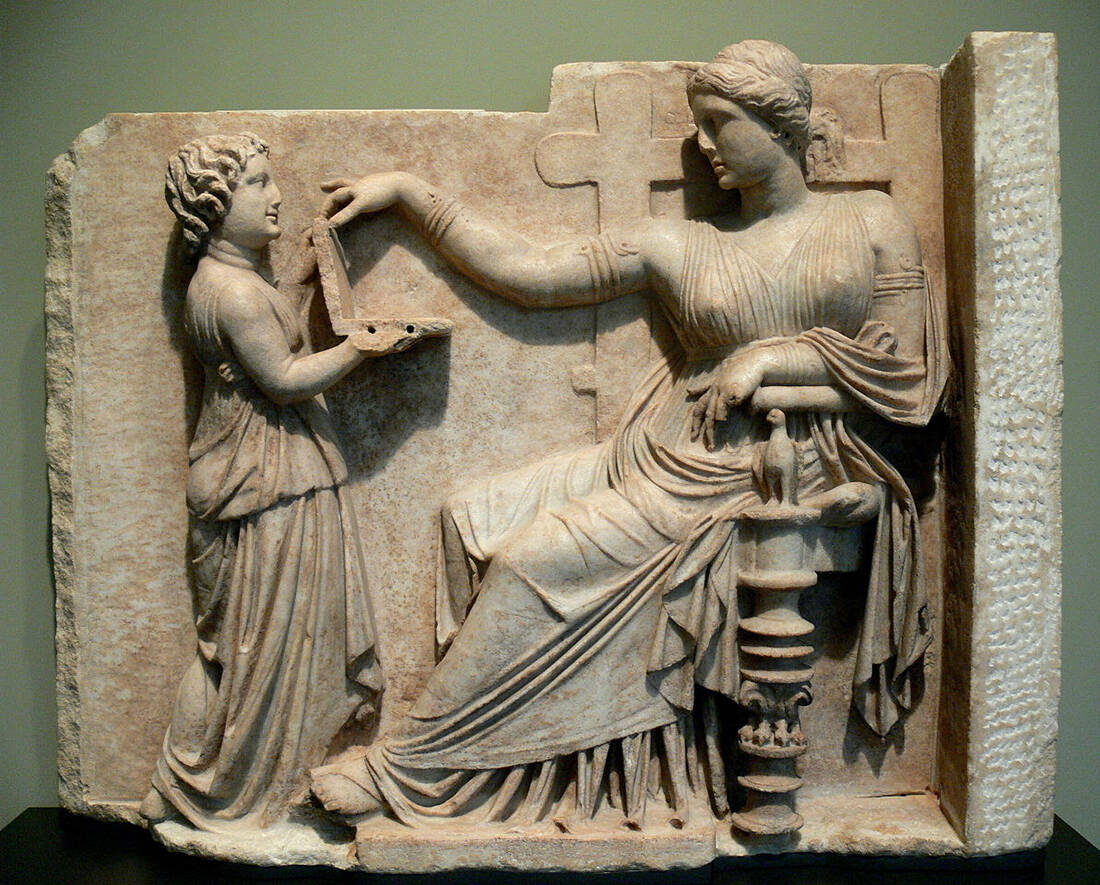
Who has not heard of the poet Sappho; The philosopher Areti of Cyrene? Gorgo Lacedaemonia, who would be a little to call her just Leonidas' wife? Or the Aspasia of Athens? We even know a lot about the famous Athenian midwife Agnodiki.
Precisely because they were important personalities. Otherwise the role of the woman was for the home and the family, the priesthood, as a service staff for the palaces, and the textile activity.
If everyday life was difficult for the ancient Greek woman, myths and epics reserved a special place for female deities, depicting them with various characteristics and qualities.
The symbol of all is Athena, the very incarnation of the strong and emancipated woman who put her comfortably with men (like Poseidon) with her grace and wisdom. But also the Amazons they could be as hard nuts as any man.
But these belong to mythology. What really was the role of women in ancient Greece?
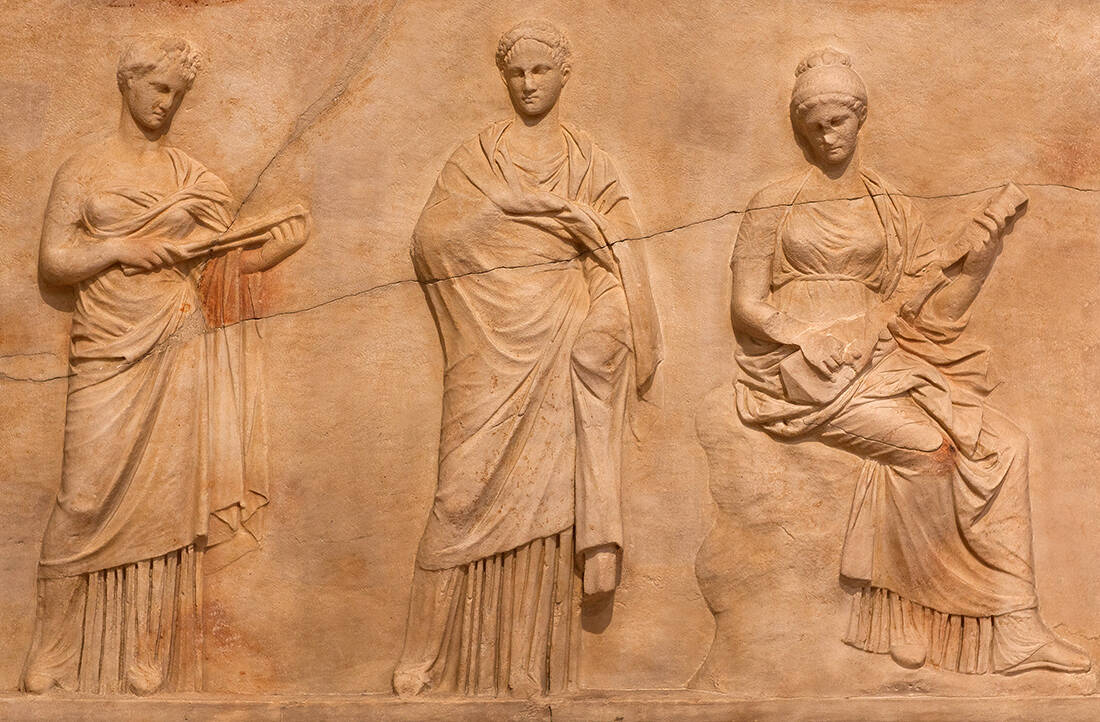
As is known from the few inscriptions and the limited archeological findings, the powerful and first Greek culture of the Late Bronze Age, a highly organized and class culture, kept detailed administrative and accounting records of palace duties and responsibilities from all. as well as workers.
From there we learn that the woman worked, dealing mainly with her industry textile industry. The Mycenaean economy was heavily dependent on trade and textile production, and historians tell us that wars were fought mainly for resources.
Mycenae was a major lever of the economy and weavers played an important role, serving a crucial art that called for specialization and experience.
The great historian Elizabeth Wayland Barber, who has reconstructed the history of weaving, tells us that weaving was such an important part of the Mycenaean economy and so developed that it was necessary to have a large number of skilled weavers at all times. Much more in numbers than any other field of action.
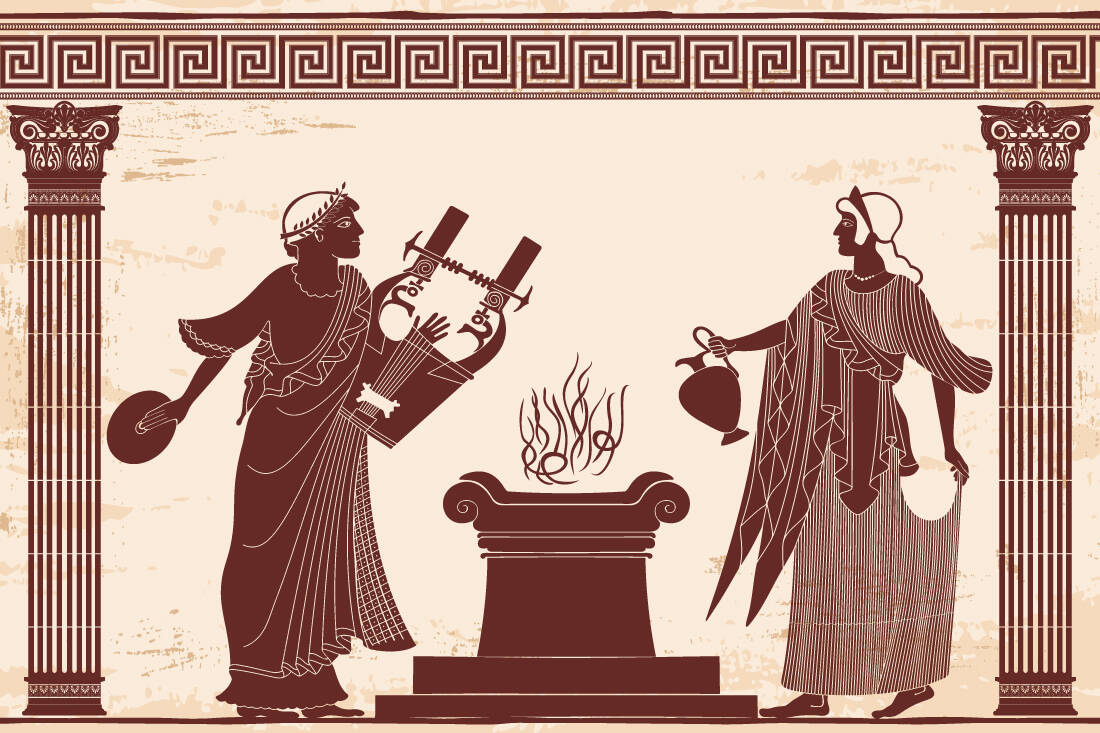
In fact, when production was declining, their kings Mycenae they authorized their armies to bring in other women, using all necessary means, such as kidnappings and abductions.
It was a society in which women had a very important place in the productive sector, being essentially a commodity that even justified wars. Mycenaean Civilization was, after all, a society in which female deities probably played a greater role than male deities.
Hesiod also gives us testimonies about the role of women in Mycenae, but he speaks mainly about the women of the ruling class and the maids of the palace.
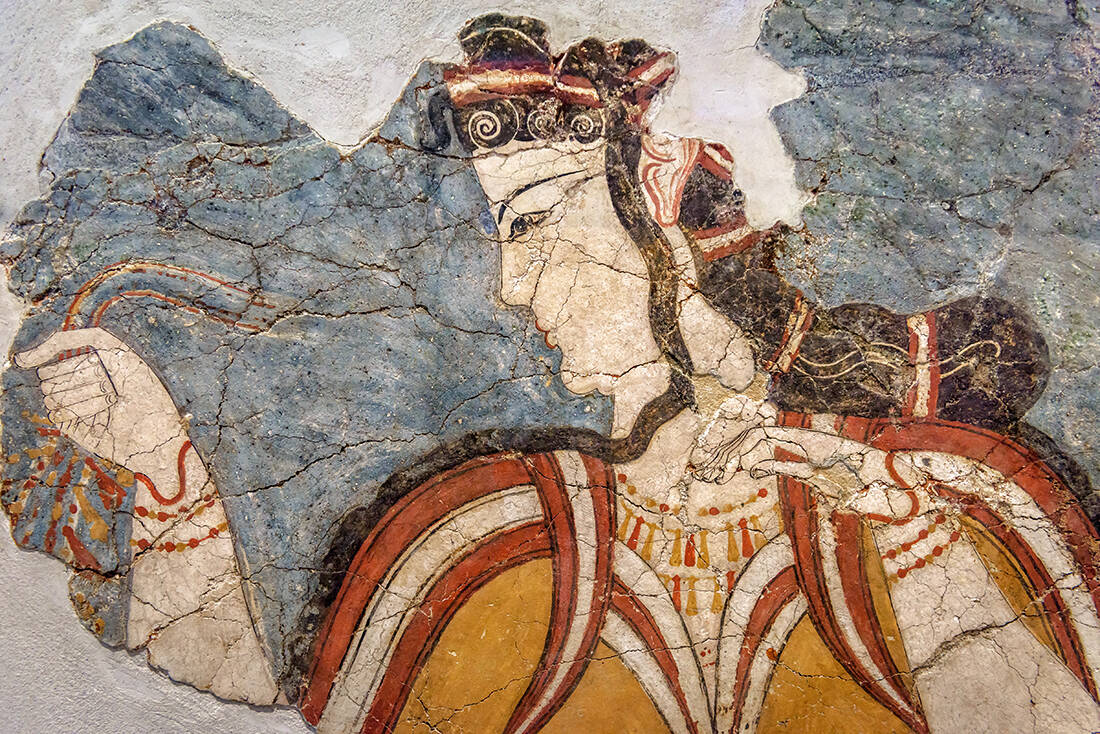
The main body of information we have about the role of the ancient Greek woman comes from Athens of classical antiquity. Here, too, her role was rather limited. As Academician Barry Powell notes in the classic "Classical Myth" textbook:
"The good Athena she had to be submissive, sexually pure, and give birth to male heirs καθ She owed her sexual maturity to accept male dominance, to receive his seed, to give birth to new males… so that the son could replace the father as the leader of the family ».
Lysias in his famous court speeches reflects some of the services offered by the Athenians to the city-state and, as everything shows, their role was limited to the daily life of the household. With one exception, of course, indicative of the class organization, that the women of the aristocracy enjoyed greater degrees of freedom than the others.
This is what the poet Simonides Amorginos testifies to us a little earlier, saying that the women of the lower classes were destined exclusively for weavers, maids, feeders and weavers.
The position of the woman involved a property status, first it was the property of her father and then of her husband. Those who knew how to work the loom, were sought after as an important asset.
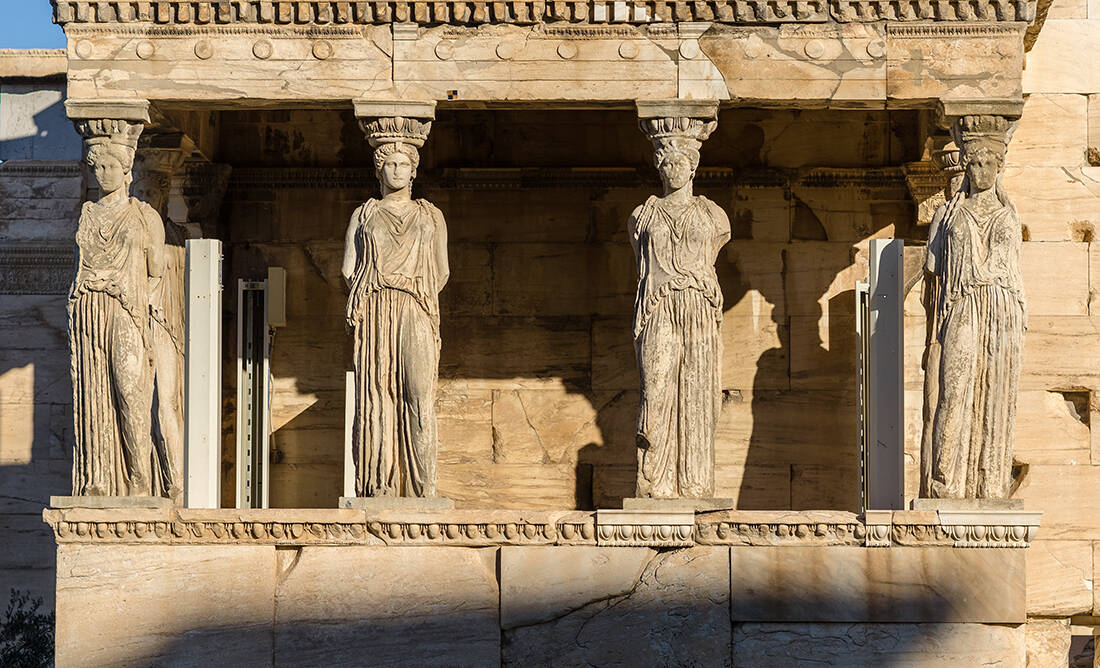
In the rural Greek society of the time, the man was the one who supplied the raw materials, through agriculture and animal husbandry, and the woman processed them, delivering fabrics or the daily food on the table.
The woman left the house accompanied by her husband for social gatherings and religious events, but never for no reason. Historians do not even agree if he could go to theater.
In the Greek world of classical antiquity, the greatest honor that a woman could obtain was that of motherhood. And her social value was determined primarily by the social position of her family. And then by her husband's counterpart.
They could not acquire property without her husband's consent or buy anything more expensive than jewelry and personal items. This does not mean, of course, that they had no right to property or wealth.
The dowries given by the woman's family to the groom could be claimed back in case of widowhood or divorce. If the woman had even had a son before divorce or the death of her husband, then the dowry was inherited by him. And it was sometimes managed by the woman.
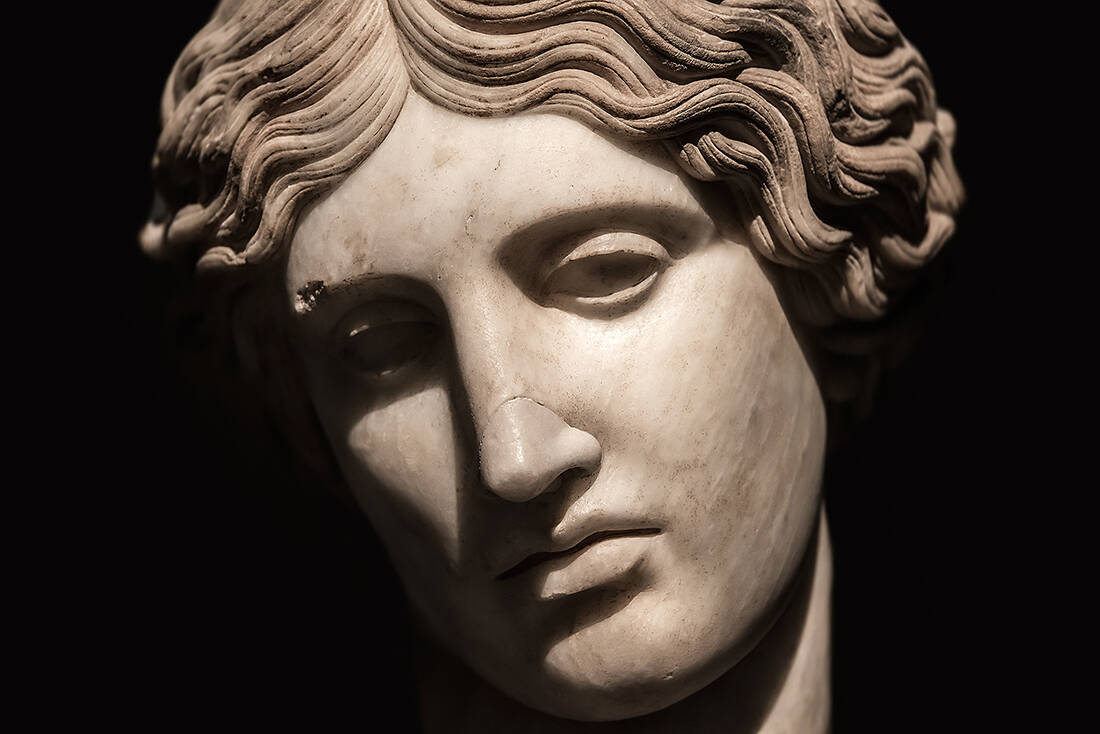
At the same time, there was in Attic Law and the epilogue, an institution legislated by Solon and giving to the daughter who had no brothers her father's inheritance, it is enough to marry the closest relative on the father's side. The institution prevailed in other city-states, not always in the same way.
In Sparta, for example, even if the only daughter was married, if she lost her father and had no brothers to inherit, she had to divorce her husband and marry the closest paternal relative.
If the father did not have a successor, he hurried to marry his daughter with a quick neighbor, as the Athenian society took the marriage of her wives.
The views of the Greek world were greatly influenced by his teachings Aristotle ("Politics"), who considered women submissive to men and without a capacity for rational thinking;

Despite the fact that different city-states reacted differently to this sensitive issue, no one took adultery more seriously than its Leprechaun. Ilia. The Leprechaun of Trifylia had a law that brought the adult naked to the market for 11 whole days, so that they would be humiliated by the people.
After their humiliation, they could not remarry or participate in any religious event. Something that obviously did not apply to men, since male adultery was passed on to the "minutiae". The man could also have multiple sexual partners, meet partners and, in some societies, even house his mistresses in the family home.
The historian Hans Licht describes in his book "The Sexual Life in Ancient Greece" several incidents of adult dishonor in the Greek world. In the Evian colony of Lower Italy, Kimi, the adult women were stoned after being sent to the market.
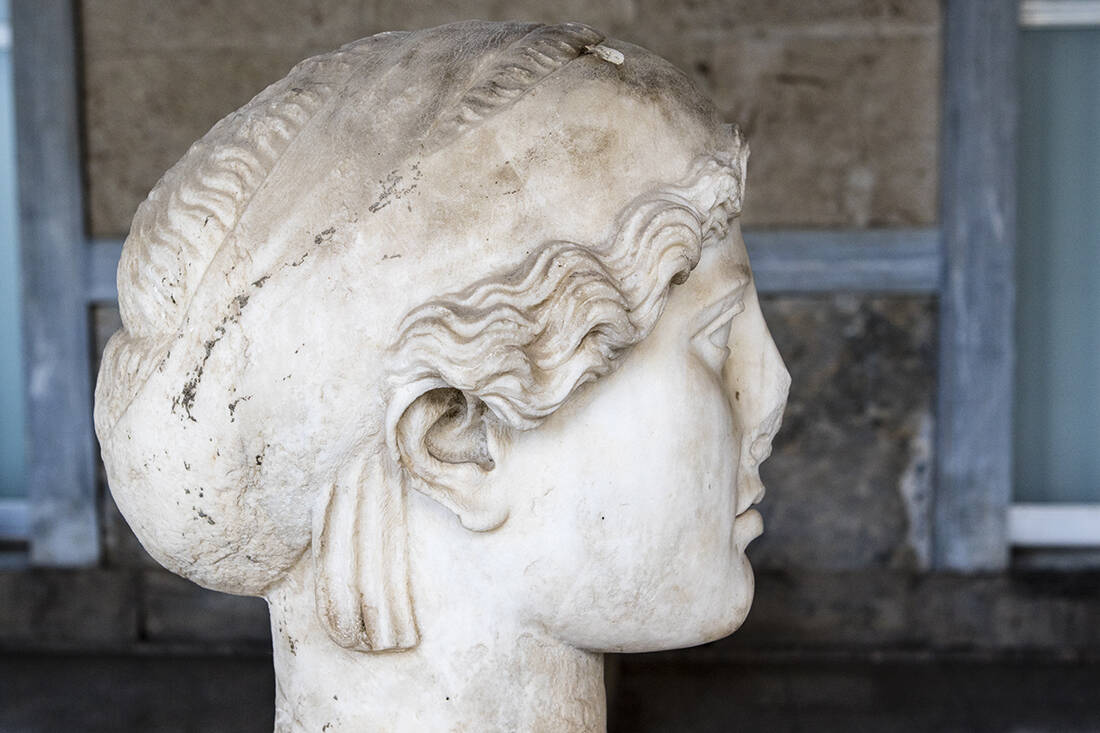
The role of women, however, would gradually change in the years to come. In Hellenistic times its position improved and the opportunities for enrichment increased. In some cities of the Greek world, they were even allowed to rise to low positions of responsibility. It is enough for the woman to be rich and to donate sufficient sums to state projects.
Even education became available to the daughters of the ruling class, as everything changed at once. THE Macedonian sovereignty brought significant cuts in everything and, as court records of the time prove, the woman could now have economic activity. Obviously enjoying more autonomy than the classic era.
Gender inequalities of course continued to exist and be chaotic. Next important step for women's emancipation? Late Rome, where she further improved the role of women in social and political affairs.
